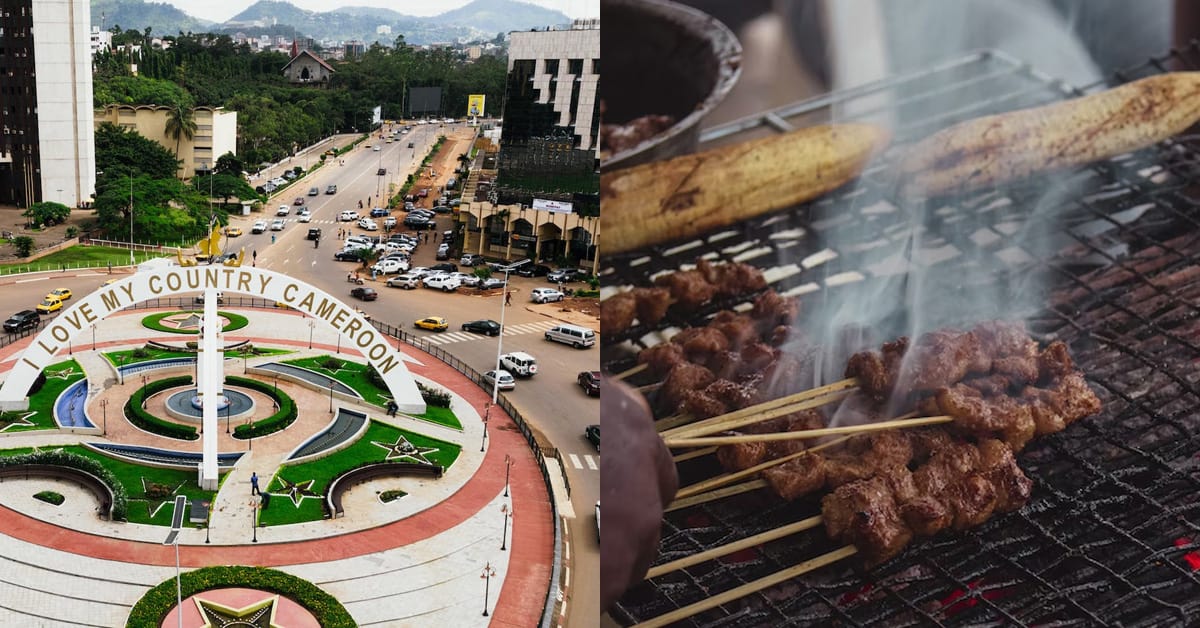Cameroonian cuisine is a reflection of the country’s diverse cultural heritage and geographical location. Located in Central Africa, Cameroon is home to over 250 ethnic groups, each with its unique culinary traditions.
The country’s cuisine is characterized by the use of fresh ingredients, bold flavors, and a variety of spices and herbs. Cameroonian food is known for its rich and hearty stews, grilled meats, and flavorful rice dishes.
From the spicy and aromatic dishes of the north to the seafood-rich cuisine of the coast, Cameroonian food is a delicious and diverse culinary experience. In this article, we will explore the different types of Cameroonian food, their ingredients, and how they are prepared.
Is Cameroonian food halal?
Cameroonian cuisine is diverse and includes both halal and non-halal options.
Some traditional dishes, such as Ndolé and Koki, are made with meat or fish, which may or may not be halal depending on how they are prepared.
However, there are also many vegetarian and vegan options available in Cameroonian cuisine that are halal.
It is important to check with the restaurant or cook to ensure that the food is prepared according to halal standards.
What kind of food do Cameroonian eat?
Cameroonian cuisine is diverse and varies by region, but some common dishes include:
- Ndolé: a stew made with bitter leaves, peanuts, and meat or fish.
- Fufu: a starchy dough made from cassava, plantains, or yams, often served with soup or stew.
- Jollof rice: a spicy rice dish cooked with tomatoes, onions, and peppers.
- Achu: a dish made with pounded cocoyam and served with a soup or stew.
- Pepper soup: a spicy soup made with meat or fish, onions, and peppers.
- Koki: a steamed bean pudding made with black-eyed peas and spices.
- Suya: grilled skewered meat seasoned with spices and served with a spicy peanut sauce.
- Eru: a soup made with leafy greens, meat or fish, and palm oil.
- Bobolo: a steamed cassava bread.
- Puff-puff: a sweet fried doughnut-like snack.
How can you tell if the food is halal in Cameroon?
In Cameroon, halal food is mainly consumed by the Muslim community.
To determine if the food is halal, you can look for the halal certification label on the packaging or ask the vendor if the food is halal.
Additionally, you can look for restaurants or food establishments that are certified halal by the local Islamic authority.
It is also important to note that some non-Muslim-owned restaurants may also serve halal food, so it’s always best to ask.
Is it hard to find halal food in Cameroon?
According to research, finding halal food in Cameroon may be challenging, especially outside of major cities.
However, some restaurants and markets in larger cities like Douala and Yaoundé may offer halal options.
Ask locals or research beforehand to find halal food options is recommended.
Is Cameroonian food healthy?
Cameroonian cuisine is generally healthy based on fresh and natural ingredients such as vegetables, fruits, grains, and lean meats.
However, some dishes, such as fried plantains and fatty meats, may be high in calories, salt, and fat.
Consuming Cameroonian food in moderation and balancing it with physical activity is important to maintain a healthy lifestyle.
What is Cameroonian food similar to?
Cameroonian food is similar to other West African cuisines, such as Nigerian, Ghanaian, and Senegalese cuisine.
It also has some similarities to Central African cuisine, particularly that of neighboring countries like Chad and the Central African Republic.
Steps to find halal food in Cameroon
1. Research halal food options in Cameroon: Start by researching halal food options in Cameroon. You can use online resources such as halal food blogs, websites, and social media pages to find out about halal food options in Cameroon.
2. Ask locals: Ask locals in Cameroon about halal food options. They can provide you with information about halal restaurants, markets, and food stalls.
3. Check food labels: When shopping for food, check the labels to ensure that the food is halal. Look for the halal certification mark on the packaging.
4. Visit halal restaurants: Visit halal restaurants in Cameroon. You can find halal restaurants in major cities such as Yaoundé and Douala. Ask for the halal certification before ordering your food.
5. Use halal food apps: Use halal food apps such as Zabihah and HalalTrip to find halal food options in Cameroon. These apps provide information about halal restaurants, markets, and food stalls.
6. Attend halal food events: Attend halal food events in Cameroon. These events provide an opportunity to sample different halal foods and meet other halal food enthusiasts.
7. Join halal food groups: Join halal food groups on social media platforms such as Facebook and Instagram. These groups provide information about halal food options in Cameroon and allow you to connect with other halal food enthusiasts.

